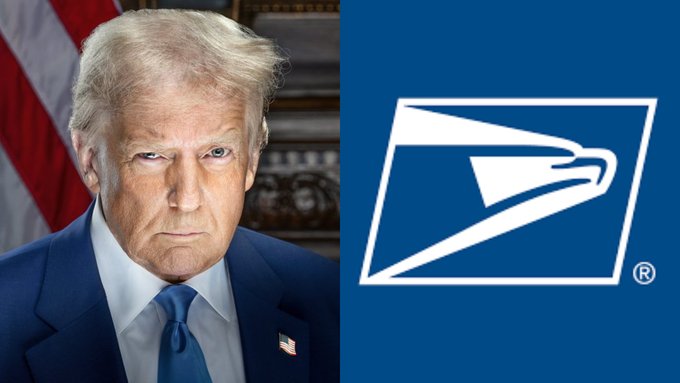You are using an out of date browser. It may not display this or other websites correctly.
You should upgrade or use an alternative browser.
You should upgrade or use an alternative browser.
Should the USPS be spun off?
- Thread starter Diogenes
- Start date
T. A. Gardner
Serial Thread Killer
Unfortunately, the USPS is written into law in the Constitution.
So, unless you can change that and get the requirement(s) for a postal service out of the Constitution, it's gotta stay.
The Constitution and the Postal System | Constitution Center
President-elect Donald Trump has revived talk from his previous term of moving to privatize the United States Postal System. To be sure, such a process would be complicated and would likely require an act of Congress.
constitutioncenter.org
So, unless you can change that and get the requirement(s) for a postal service out of the Constitution, it's gotta stay.
Unfortunately, the USPS is written into law in the Constitution.
The Constitution and the Postal System | Constitution Center
President-elect Donald Trump has revived talk from his previous term of moving to privatize the United States Postal System. To be sure, such a process would be complicated and would likely require an act of Congress.constitutioncenter.org
So, unless you can change that and get the requirement(s) for a postal service out of the Constitution, it's gotta stay.
Article 1 section 8, clause 7 grants Congress the authority to establish post offices & post roads— “establish” doesn’t necessarily mean “run”, which should leave room to privatize under the 9A & 10A.
T. A. Gardner
Serial Thread Killer
It does mean that Congress has ultimate control, which in effect does mean "run."
Article 1 section 8, clause 7 grants Congress the authority to establish post offices & post roads— “establish” doesn’t necessarily mean “run”, which should leave room to privatize under the 9A & 10A.
It does mean that Congress has ultimate control, which in effect does mean "run."
Does it?
The U.S. Constitution does not explicitly prohibit the United States Postal Service (USPS) from being run by a private company, but it does grant Congress the authority to establish and regulate postal services. Article I, Section 8, Clause 7 of the Constitution, known as the Postal Clause, states that Congress shall have the power "To establish Post Offices and post Roads." This gives Congress broad discretion over how the postal system is structured and operated.
Historically, the USPS has operated as a government entity, evolving from the Post Office Department (established in 1792) into the modern USPS in 1971 under the Postal Reorganization Act. This act transformed it into an independent agency of the executive branch, though it still operates under congressional oversight and with certain public service mandates, like universal mail delivery.
There’s no explicit constitutional requirement that the postal service must remain a government-run operation. Congress could, in theory, delegate or privatize postal functions to a private company, as long as it maintains its constitutional authority over the system. Legal scholars and courts have generally interpreted the Postal Clause as giving Congress flexibility in implementation—whether through a public entity or private contractors. In fact, the USPS already relies heavily on private companies (e.g., FedEx, UPS) for certain logistics and transportation services, showing that private involvement isn’t constitutionally barred.
@Grok
It costs a lot more to deliver a letter to a farm in the middle of nowhere than to an apartment in NYC. If we "spin it off", then a red state subsidy dies. Or they might have us pay extra taxes to subsidies a private company delivering mail to Republicans.






